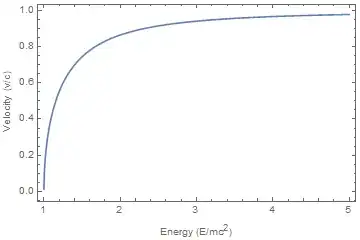I'm laying in my bed right now. Am I traveling 0mph? Am I traveling 850-ish mph (south texas) as the earth rotates? Am I traveling 67,000mph as my planet orbits the sun? Am I traveling 560,000mph as our sun orbits the galaxy? What speed is our galaxy moving at as it travels through the universe? Point is, velocity requires relativity to a point in space, or relativity to an object which has a location.
I'm not saying that Einstein's theory of general or special relativity is flawed. I'm not claiming to be smarter than Einstein. I'm claiming that nobody has succeeded in clarifying this point to me and it keeps me up. I've spent so much time in my life trying to conceptualize this
How can we determine that it is impossible to travel faster than the speed of light if there is no universal point of origin in our universe from which all velocity is measured relative to? Wouldn't general relativity be more about observer perception?
I'm orbiting the center of the galaxy at 560k mph. If I shine a light in the same direction that I am orbiting why wouldn't the speed of that ray of light be c + 560,000 mph relative to the center of the galaxy?
Imagine hypothetically that I am on a spacecraft in the middle of open space, in between galaxies where no bodies of mass can affect my spacecraft with gravitationalpull. If I begin traveling from a certain location at 99.9% of c, why couldn't I fire the rocket up again to accelerate to 110% of c from that original location? What... is space a medium that prohibits this, or is my spacecraft just aware of Einstein's theory and doesn't want to break any rules?... my old physics professor who i refer to as an "information regurgitator" basically would tell me to just accept it and don't ask questions in a nutshell. He said that my spacecraft would not experience time if it was traveling at the speed of light. That does not pass through my mental filter. In my mind the spacecraft would experience time no different than anything else, it only wouldn't experience time RELATIVE to it's original location that it left from in the first place. The location that the spacecraft's velocity is relative to
I'm not looking for somebody to point out the mathematical demonstrations to me. Even when I do them myself they still don't clearly reveal the intuition behind this concept. I think most people do not totally understand general relativity because none of them have been able to decisively explain this to me
